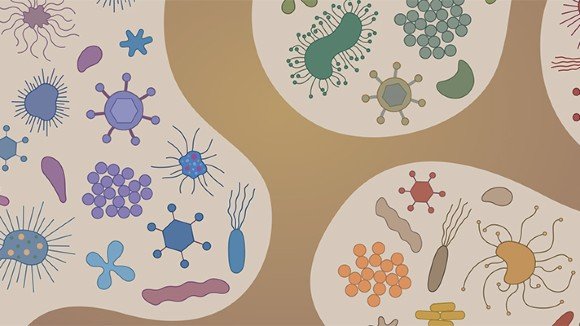Microbiome and Agni
The microbiome is the collective genome of the bacteria, fungi, viruses, and archaea that live in and on you. The gut holds 70% of your immune system and the microbiome communicates via the nervous system.
The human gut microbiome is vital for nutrition, metabolism, immune system, neurological, and endocrine function of the human - varies with diet/lifestyle.
There are 3 eco-system interacting ‘all the time’: microbiome digestive, neurological and endocrine function.
The job of the microbiome is to train and educate the immune system communication between the immune system and the microbiome. The immune system and bad things need to be able to communicate together otherwise the immune system won’t know how to behaviour.
The responsiveness of the nervous system are being determined by the microbiome mutual experience. They both have a part to play with the immune system.
The role of the microbiome & agni
The microbiome and Agni/digestion are closely linked because the microbiome is a form of our Agni. If the microbiome is not working properly then Agni will not be working properly. It may not be sufficient to make your Agni work well but it is essential to make your microbiome work well.
Good quality rasa means food is digesting properly (rasa = first dhatu {bodily tissues} responsible for lymph/plasma which is always circulating the body and responsible for nourishing all the other dhatus).
If food is not digesting properly it will create more mucous in the digestive fire, which will weaken the structure of the body and impact the microbiome.
5 herbs to improve microbiome
Ginger
Turmeric
Cayenne Pepper
Cinnamon
Oregano
Eat the right amount which is compatible for you, varies for each individual.
“The balance and imbalance of the dosas are always dependent on Agni. Therefore always protect Agni and shun anything that might damage it”. Anything that damages/protects Agni, damages/protects the microbiome.
Eating a diversity of plant foods (fibre), and vegetarian foods is what gives you the best possibility of a healthy microbiome. Then each individual can incorporate the appropriate animal protein best suited to them along with all of these plant foods. Different plant foods consist of vegetables/fruits, legumes, grains, nuts & seeds, spices, and fresh herbs.
Main Factors that influence the microbiome:
Birthing method
Breast-feeding
Antibiotics
Diet
Environment
Age
Stress that can impact the microbiome:
Pscyhological stress/trauma
Circadian/sleep disruption
environmental extremes (high altitude, heat, and cold)
Environmental pathogens, toxicants, pollutants, and noise
Excess physical activity
Starvation

